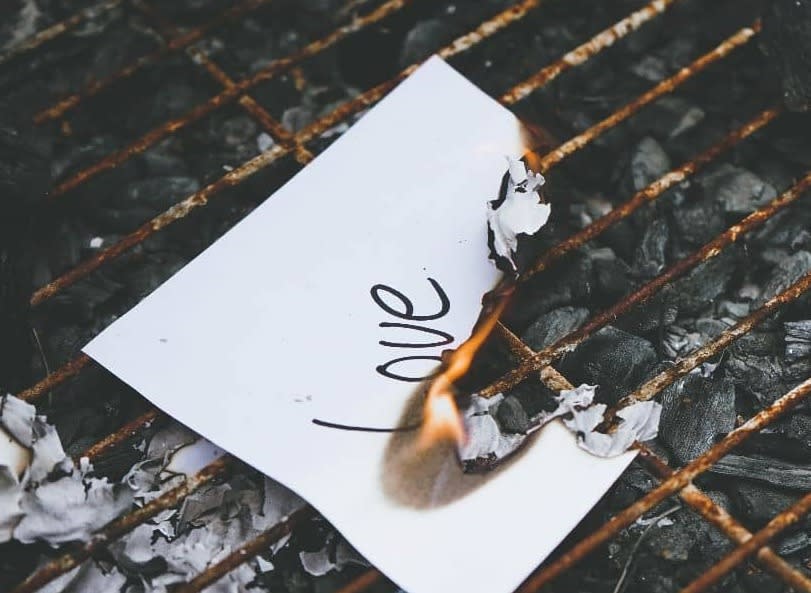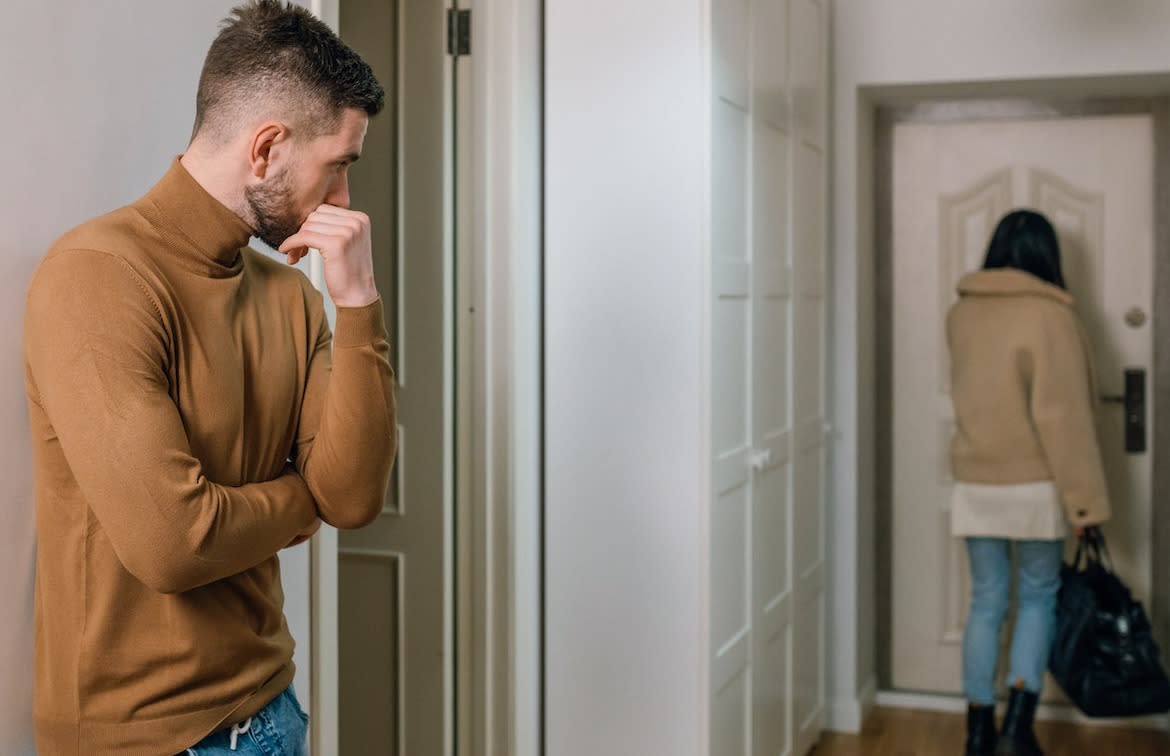
How to Heal From a Toxic Relationship
Feb 28, 2024
By Will Moore
Are you tired of feeling trapped in a toxic relationship? Do you long for the day you can finally break free and heal? Well, my friend, you're in luck. Relationships are one of the five core areas of life that are essential for your well-being and happiness, and it's crucial to address issues within them to maintain your overall health.
In this article, we'll take you through the steps on how to heal from a toxic relationship, from understanding the nature of toxic relationships to rebuilding your self-worth and confidence.
Recognizing the Signs of a Toxic Relationship
Before we can begin the healing process, it's important to understand what exactly we're dealing with. Toxic relationships can take many forms, but there are some common signs to watch out for. Have you ever felt like you're constantly walking on eggshells around your partner? Or maybe you find yourself being manipulated or controlled in ways that make you feel small and insignificant. These are all red flags that you may be trapped in a toxic relationship.
I remember some of my toxic relationships very clearly; I was young, a mere adolescent, and I had friends who loved ragging on each other. I mean, sure, we’ve all had friends that teased each other, but this group was brutal. We were mean to each other; we got deep down into the nasty stuff, and the main goal was to make the other person feel bad about themself. I had so many frenemies.
Check this Podcast to Understand the Benefits of Soft Skills
I was “friends” with these people for years. And the result was that I became super insecure and upset because I couldn’t brush off the insults as well as everyone else seemed to.
I constantly saw myself as a victim and had so much negative momentum over the years. I was not self-confident, and the world started becoming darker and darker because of these toxic relationships.
Thankfully, I had a moment that interfered with my mentality and would change how I see life forever. My favorite professor understood something was happening with me and suggested I read a book that completely changed my point of view. After I read it, I started stepping out of my failure loop and into my success loop.
The book was How to Win Friends And Influence People by Dale Carnegie. Even though it was written in 1936, it has rock-solid advice that is still extremely relevant today. Carnegie explains how to develop and nurture deep relationships, and those principles stuck with me in college and help me even now. I learned much about true relationships and how I could form and maintain them.
Without that intervention, I would still have no idea how to form an emotionally healthy relationship and remain drawn to people who insult me and bring me down. Now, I’ve developed and maintained meaningful, long relationships and built positive momentum in my life.
It's essential to recognize these signs and acknowledge that you deserve better. You are worthy of love and respect, and it's time to take the first step towards healing.

How to Heal from a Toxic Relationship: 7 Steps
Healing from a toxic relationship often requires more than just time; it demands intentional actions and changes in our daily habits. Similar to building any new habit, distancing oneself from a toxic individual involves repeated, consistent actions that eventually lead to significant emotional and mental health improvements.
1. Acknowledge and Accept the Situation:
The first step in healing from a toxic relationship is acknowledging that the relationship was harmful and accepting that it has ended. This can be one of the hardest steps, as it involves confronting the reality of the situation and your feelings about it. Give yourself permission to feel sadness, anger, or relief – whatever emotions arise. Understanding that it is okay to leave a situation that was hurting you is crucial for moving forward.
2. Cutting Off from the Toxic Person
The initial and perhaps most crucial step in healing is to cut off contact with the toxic individual. This means no phone calls, texts, social media interactions, or in-person meetings. While this may be challenging, it's essential for creating a space where healing can begin. Think of this as setting a new habit: every time you resist the urge to contact or respond to the toxic person, you strengthen your resolve and commitment to your well-being. Cut off all the triggers that stop you from moving on.
Step 3: Prioritize Self-Care and Self-Compassion
Focus on your well-being by engaging in self-care activities and treating yourself with kindness and understanding. Establish routines that promote your physical and emotional wellness, such as regular exercise, healthy eating, and sufficient sleep. These acts of self-care can become new, positive habits, replacing the old patterns associated with the toxic relationship. This will also help you in achieving your long term health goals.
Step 4: Set Clear Boundaries
Determine what boundaries are necessary for your healing and implement them firmly. This might involve physical space, such as rearranging your living environment, or emotional boundaries, such as not discussing the toxic relationship with certain people. Setting boundaries is a habit that safeguards your emotional health and helps you find happiness within yourself.
Step 5: Seek Support from Others
Reach out to supportive friends, family members, or professionals who can offer empathy and guidance. Just as habits are easier to maintain with a support system, healing from a toxic relationship can be more manageable when you're not alone. Regular interactions with supportive individuals can become a new, healthy routine in your life.
Step 6: Cultivate Self-Awareness and Growth
Use this period of your life to reflect, learn, and grow. Engage in activities that promote self-awareness, such as journaling, meditation, or therapy. By making these practices part of your daily or weekly routines, you can develop a deeper understanding of yourself and what you need in relationships.
Step 7: Rebuild and Move Forward
Begin to reconstruct your life without the toxic influence. Explore new interests, cultivate new relationships, and set personal goals. Establishing new, healthy habits during this phase can lead to lasting changes and a brighter future.

Signs You're Healing from a Toxic Relationship
Once you’ve mustered up the courage to leave a toxic relationship, it’s important to remember that the healing process takes time. Rome wasn’t built in a day, and healing from a toxic relationship is no different. But how do you know if you’re on the right track? Let's talk about signs you're healing from a toxic relationship.
You Prioritize Your Needs
One sign that you’re healing is when you start to prioritize your own needs and well-being. You no longer feel the need to put your partner’s happiness before your own. Instead, you’re focusing on self-care and making choices that align with your personal values and interests.
You Set Boundaries
Another sign of healing is when you find yourself setting boundaries and sticking to them. In a toxic relationship, boundaries are often blurred or completely disregarded. But as you heal, you begin to assert yourself and communicate your needs to others. It’s empowering to realize that you have the right to say no and establish healthy boundaries.
You Are More Self-aware
Remember, healing is not a linear process. There will be good days and bad days, but each step forward is a victory worth celebrating.
As you continue on your healing journey, you may also notice a renewed sense of self-awareness blossoming within you. This newfound awareness allows you to recognize and acknowledge your emotions, thoughts and triggers more clearly. By being in tune with yourself, you can better navigate challenging situations and make decisions that align with your emotional well-being.
How to Have a Healthy Relationship after a Toxic One?
After breaking free from a toxic relationship, it's important to take some time to focus on yourself and rebuild your life. But eventually, you may find yourself ready to venture back into the world of love and romance. Here are some tips on how to have a healthy relationship after a toxic one:
Work on your self-esteem and self-worth. Remember, you deserve to be treated with love and respect.
Set clear boundaries and communicate your needs from the start.
Learn from your past experiences. Reflect on what went wrong in your toxic relationship and make a conscious effort to avoid falling into the same repetitive patterns.
Seek professional help if needed. A therapist or counselor can provide guidance and support as you navigate the complexities of a new relationship.
Remember, healing from a toxic relationship is a process, and it's okay to take it slow. Focus on building a strong foundation of self-love and self-care before diving into a new romantic relationship.
Can a Toxic Relationship Be Fixed?
Ah, the age-old question. Can a toxic relationship be fixed, or is it a lost cause? While every situation is unique, it's important to recognize that toxic relationships often have deep-rooted issues that are challenging to resolve.
Fixing a toxic relationship requires both partners to be willing to acknowledge their faults, take responsibility for their actions, and actively work towards positive change. It takes time, effort, and a commitment to personal growth.
Read About How to Find Happiness within Yourself
However, on some occasions, despite all efforts, it may not be possible to salvage the relationship. In such cases, it's essential to prioritize your well-being and make the difficult decision to walk away.
Remember, you deserve happiness and love in your life. Don't settle for anything less.
The First Step To Exiting Your Toxic Relationships
There’s a saying that you are the average of the three people you hang out with most. In my experience, that is extremely truthful and a universal principle. It has been proven time and time again.
Take the two-minute Core Values Quiz to learn about where you stand in your relationship core, as well as the four others.
Once you get your result, write down 3-5 people you spend the most time with. It could be your spouse, your friends, or your coworkers. Now rank them based on the questions you answered in the quiz on a scale of 1-5.
Suppose they fall in the lower numbers, like 1-3, in most of their cores. In that case, you’ll need to remove them from your immediate life so their toxicity and negative momentum don’t continue to affect you.
And there’s more - once you’ve kickstarted your journey with our quiz, why stop there? Continue your momentum towards a life filled with joy, balance, and meaningful connections by DOWNLOADING our Gamified AI habit tracking app 🚀🚀🚀. This isn’t just an app; it’s your new best friend in building a life where you can truly thrive and level-up in life.
Don’t just dream of a life filled with love and respect; make it your reality.
FAQs - How to Heal from a Toxic Relationship
Can toxic relationships be fixed?
Yes, some toxic relationships can be fixed, but it depends on a few key factors, including both partners' willingness to change, communicate openly, and work on themselves and the relationship. Toxic behaviors can stem from unresolved emotional issues, communication breakdowns, or dysfunctional patterns, and changing these patterns requires commitment and effort from both people involved.
What specific strategies can be used to rebuild self-esteem and self-worth after leaving a toxic relationship?
Engage in activities that reinforce your value, such as volunteering or creative projects. Practice positive affirmations and self-reflection to understand your worth. Seek feedback from trusted friends or a therapist to build a more positive self-image.
How can someone effectively identify and establish their personal boundaries after experiencing a toxic relationship?
Reflect on past experiences to identify what makes you feel uncomfortable or drained. Communicate your limits clearly and consistently to others. Respect your own boundaries by saying no to things that cross them and sticking to your decisions.
What are the signs that indicate one is ready to start a new relationship after healing from a toxic one?
You feel confident and content with being alone, have a clear understanding of your worth and needs, and are no longer consumed by the past relationship. You recognize and can maintain healthy boundaries and are open to trusting and respecting a new partner.
How does one handle mutual friends or shared responsibilities (like children) after cutting off contact with a toxic partner?
Establish clear boundaries and communication rules regarding mutual responsibilities or interactions. For shared friends, decide whether to maintain these friendships independently of the ex-partner. Prioritize the well-being of any children involved and seek legal or professional advice if necessary.
